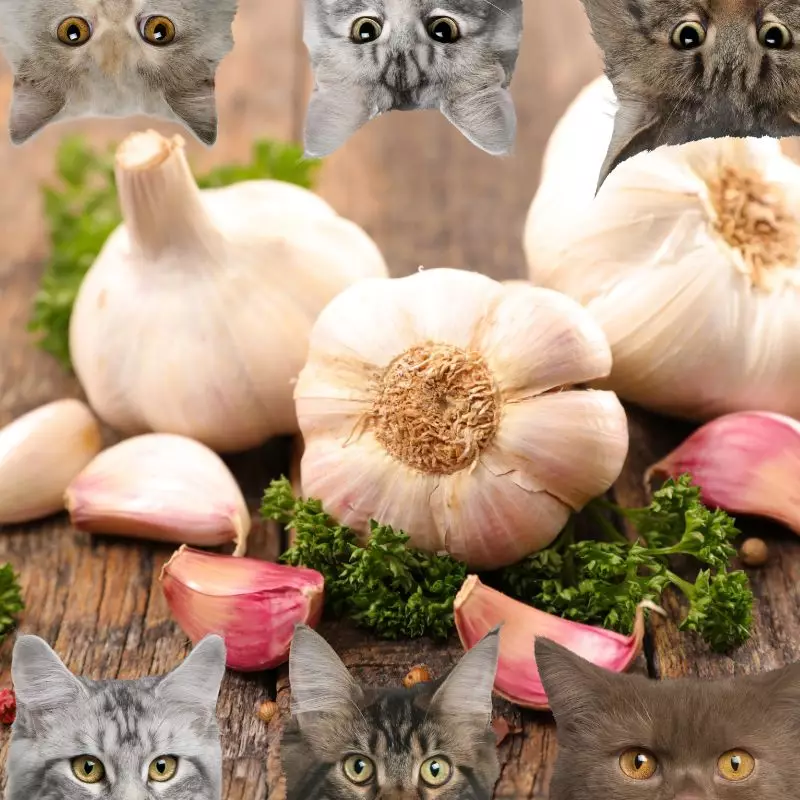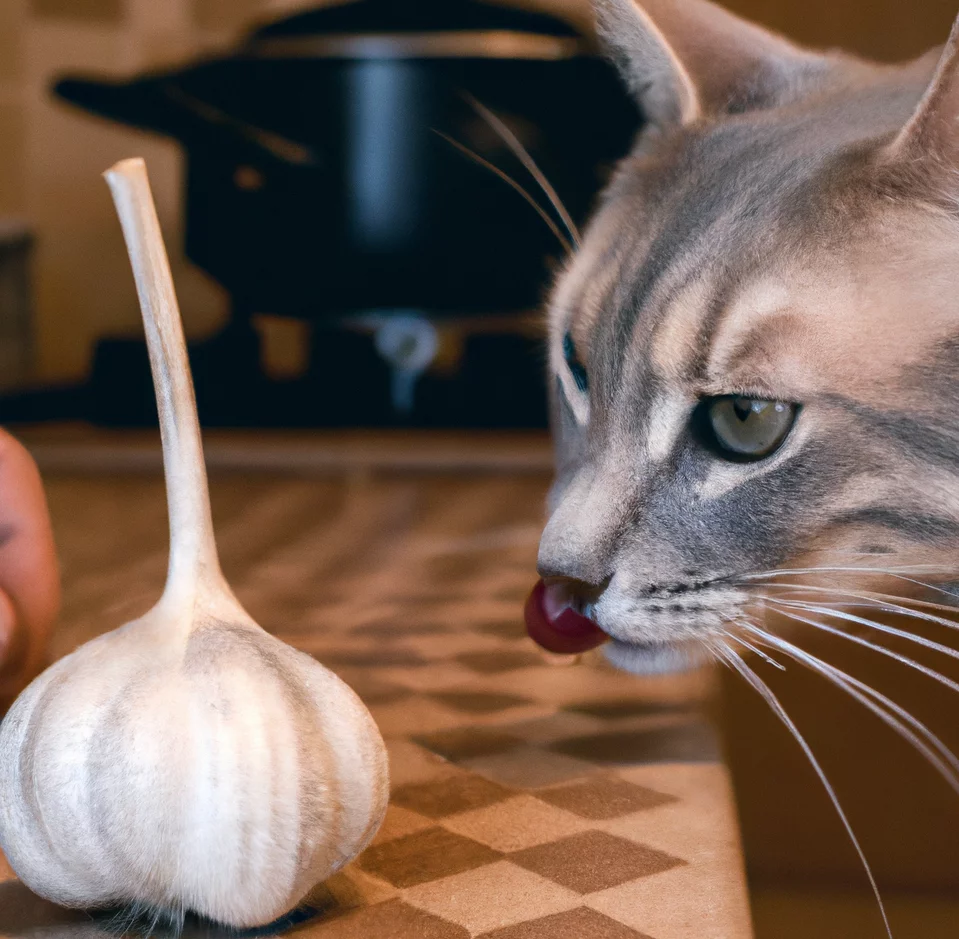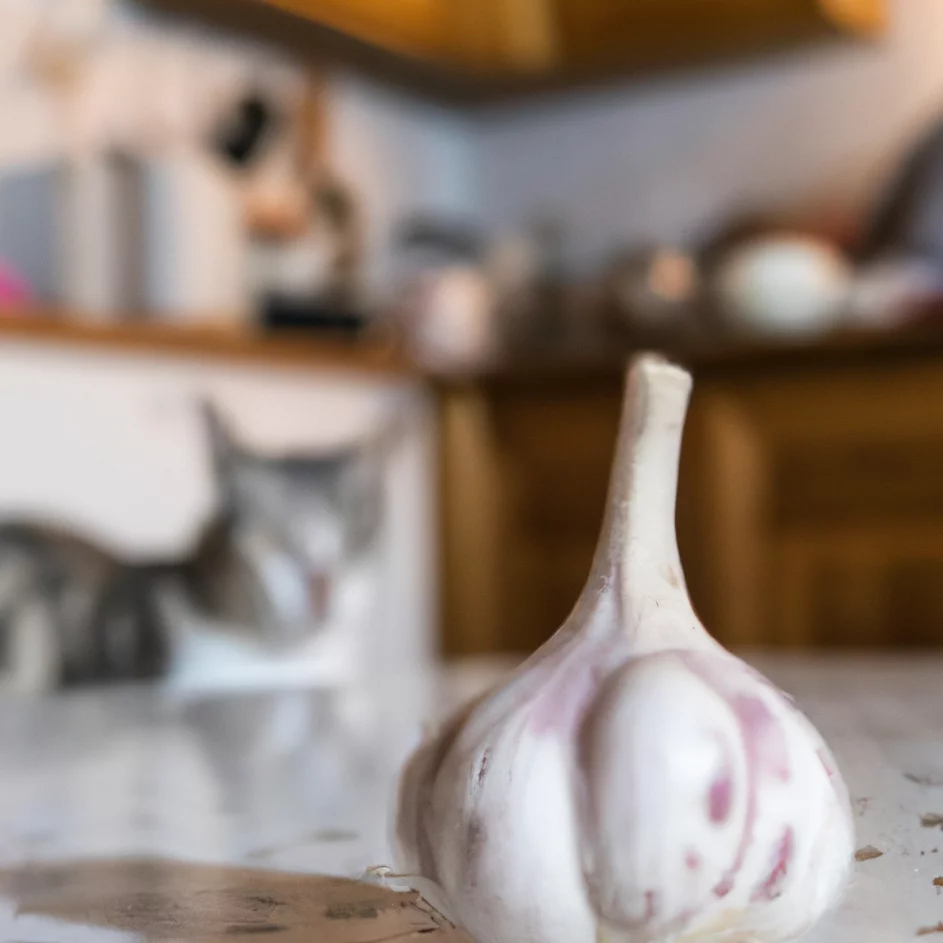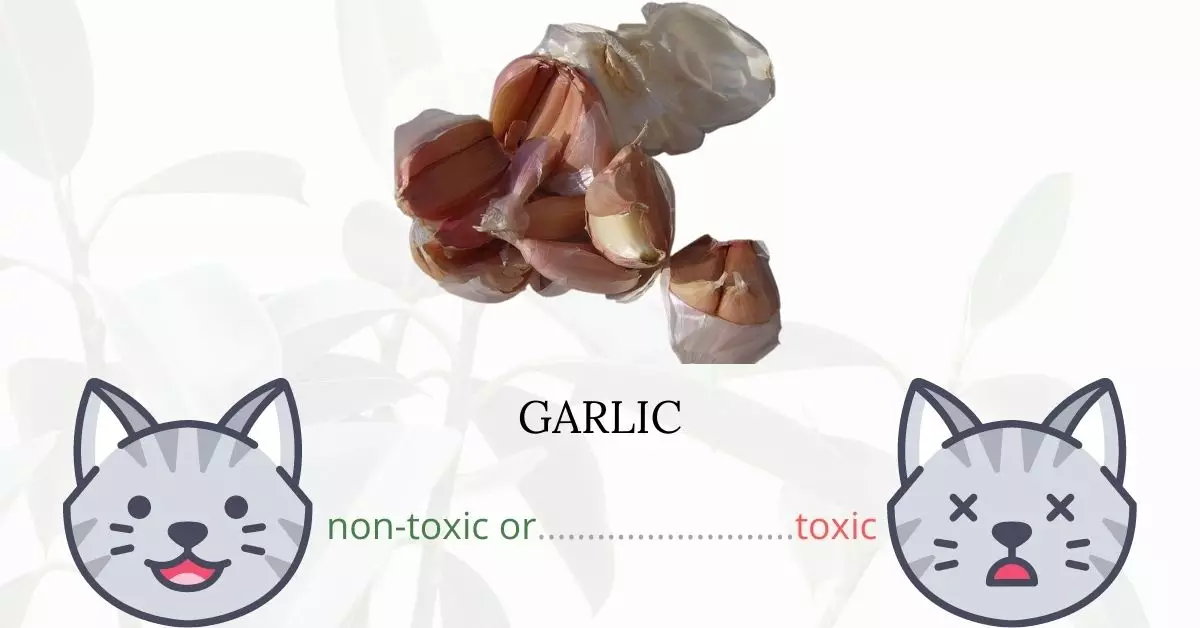Yes, garlic is toxic to cats. While garlic is a popular ingredient in many cuisines and is frequently found in households, it poses significant risks to felines. Much like its relatives such as chives, leeks, and onions, garlic contains organic sulfur compounds that can lead to oxidative damage in a cat’s red blood cells. This damage can subsequently cause hemolytic anemia, a serious condition where red blood cells are destroyed faster than they are produced. If a cat has ingested garlic, it is crucial to contact a veterinarian immediately.
This article was crafted in collaboration with a team of experienced DVMs (doctors of veterinary medicine) who provided expert insights and information on the potential risks various plants, including garlic, have on cats. We have further substantiated our claims through comprehensive research on high-authority websites such as the ASPCA and PetMD, ensuring that readers are presented with accurate and current data.
Clinical Signs of Garlic Poisoning in Cats

When a cat is exposed to garlic, whether by contact, inhalation, or ingestion, certain clinical symptoms can manifest. Typically, these symptoms become noticeable two to four days post-exposure, which often complicates the diagnosis for veterinarians and cat owners. Understanding each symptom can help in timely identification and management:
- Ataxia or lack of muscle coordination: Caused by the neurotoxic effects of the compounds in garlic. The cat may appear unsteady or clumsy.
- Appetite loss: Due to gastrointestinal distress or nausea from the toxic effects of garlic.
- Pale gums: An indication of a reduction in red blood cells, leading to anemia.
- Vomiting and Diarrhea: These are the body’s natural mechanisms to eliminate ingested toxins. Garlic can irritate the stomach lining, leading to these symptoms.
- Abdominal pain: Resulting from inflammation and irritation in the digestive tract.
- Increased heart rate: A consequence of reduced oxygen supply due to compromised red blood cells.
- Fatigue: Arises from the reduced ability of the blood to transport oxygen efficiently.
- Jaundice: Yellowing of the skin and eyes, signifying liver dysfunction or severe hemolytic anemia.
- Red or brown-colored urine: A result of the breakdown of red blood cells, leading to hemoglobinuria.
- Increased respiratory rate: The cat’s effort to compensate for reduced oxygen delivery due to anemia.
- Lethargy: Generalized weakness and decreased energy resulting from the toxic effects on the cat’s body systems.
- Excessive drooling: Often seen when there’s nausea or oral irritation, which garlic can induce.
- Altered level of consciousness: A severe consequence indicating significant neurotoxic or systemic effects.
It is essential to contact a veterinarian immediately upon noticing any of these symptoms or if you suspect garlic exposure.
First Aid and Treatment of Garlic Poisoning in Cats

If the garlic was recently taken, the vet will orally give hydrogen peroxide solution to induce vomiting. This will remove all of the garlic that has not been digested from your cat’s stomach, preventing the illness from escalating. Gastric lavage may also be performed or the vet may also opt to use activated charcoal.
Your cat’s condition will be monitored by the veterinarian to see if he need supportive care such as IV fluids or oxygen therapy. Because of the vomiting and diarrhea that this illness induces, cats with garlic poisoning frequently require IV fluids to avoid dehydration.
If your cat’s condition is serious and he has already lost a significant number of red blood cells, he may require a complete blood transfusion to survive.
Recovery from Garlic Poisoning in Cats

Recovery rates are good in mild or moderate cases of garlic poisoning, although cats with severe cases of garlic poisoning may experience difficulties. Talk to your vet about at-home care for your cat once he or she is allowed to return home.
Garlic should be removed from your cat’s diet, and only vet-approved cat diets should be used. Give your cat plenty of fluids as this will aid in clearing up his or her sensitive stomach. Make your cat comfortable at home while regaining strength.
Prevention of Garlic Poisoning in Cats
If you use garlic in your cooking, make sure you keep it out of reach of your cats. Do not leave your food unattended, particularly foods with garlic in it, as cats are naturally curious and might take a nibble on your food.
If you love plants but have cats at home, check out these lists:





